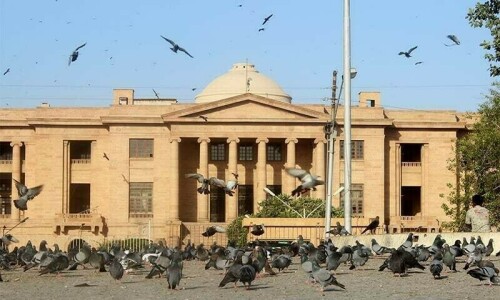AS the election season heats up, party slogans have started filling the airwaves. No campaign is complete without a catchy and timely slogan that is brief and reflects the overwhelming mood of the time.
Unlike the electoral battle, a party’s success at producing a powerful one-liner is manifested in its popularity — if it is found on vehicles, walls, billboards, signboards and, most importantly, the internet.
While political catchphrases were driven by party philosophy in the past — from Zulfikar Ali Bhutto’s Roti, Kapra or Makan (food, clothing and shelter) to Imran Khan’s tsunami wave and Tabdeeli (change) — the war of words this year has seen a shift in focus to target rival parties instead.
In 2013, Arif Lohar’s version of Mian De Naray Wajne De (Let people chant Nawaz Sharif) dominated the Pakistan Muslim-League Nawaz’s election campaign. In 2018, the Pakistan Peoples Party caught on to the slogan in a witty attempt to demonstrate that the party still has a following in Punjab as the workers chant Bhutto De Naaray Wajjan Gey at their rallies in the province.
Similarly, in the aftermath of the Panama Papers case, the PML-N projected its undeterred stance in its slogan Rok Sako Toh Rok Lo (Stop us if you can). In a sharp-witted and timely rebuttal, the Pakistan Tehreek-i-Insaf launched its anthem Rok Sako Toh Rok Lo Tabdeeli Aai Hai (Stop us if you can, change is here).
Besides carrying a political message, slogans help politicians convey their manifesto and political stance in a few words. The Muttahida Majlis-i-Amal’s election slogan is: Hamari Siyasat Khidmat-i-insaaniyat (Our politics is to serve humanity). PML-N’s Vote Ko Izzat Do (respect the vote) reiterates its narrative.
Interestingly, this time around the newly-formed parties and independent candidates are more interested in use of slogans to woo voters.
Independent candidate Jibran Nasir’s Hum Mein Se Aik (one of us) has picked up well on the public sentiment against corrupt leaders and nepotism. Jawad Ahmed’s Barabari Party Pakistan is banking on vote for equality, based on its manifesto based on egalitarianism.
With the growing emergence of religious groups in mainstream politics, religion-driven slogans such as Deen Aya Deen Aya (religion is here) and Islam ko vote do (vote for Islam) are also prominent on campaign posters across the country.
Published in Dawn, July 20th, 2018











































Dear visitor, the comments section is undergoing an overhaul and will return soon.